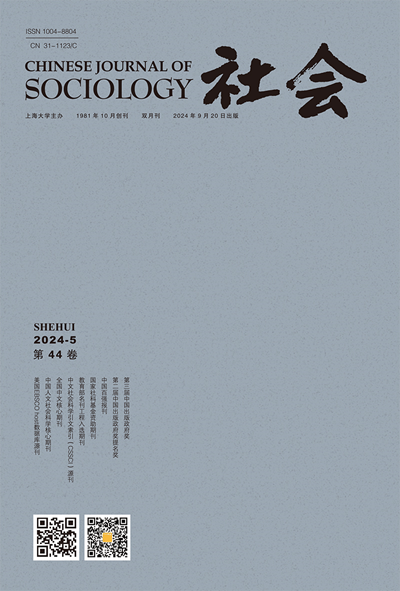为什么中国青春期女孩在成绩测试中表现优于男孩?
IF 1.8
4区 社会学
Q2 SOCIOLOGY
引用次数: 2
摘要
目前的研究通过对中国案例的混合方法分析,扩展了我们对广泛记录的有利于女性的性别教育差距及其影响因素的理解。我们开发了一个分析框架,该框架包含三种机制——代际社会契约、非认知技能和整个人生过程中的累积优势——来实证评估中国青少年的性别成就模式及其社会机制。中国家庭小组研究的数据表明,青春期女孩的语言和数学成绩高于男孩,言语成绩的差距大于数学成绩。造成这些性别差距的原因有三个:(1)(祖父母)父母对女孩的期望更高,对女孩的监督更密切,对女孩和男孩的投资一样多;(2) 女孩拥有更好的非认知技能;以及(3)女孩在早期表现更强,这为她们以后的成就提供了优势。深入访谈将这些统计模式置于支持女孩教育的家庭逻辑的深刻变化和关于女孩学习行为的重新配置的性别话语中。从代际契约的角度来看,在低生育率的背景下,女儿已经成为密集投资的长期家庭成员,尤其是在改革后的中国教育竞争加剧的情况下。此外,由家庭成员和教师参与的关于女孩卓越的非认知技能(如顺从和自律)的性别话语,作为对女孩成就的自我实现预言,产生了强大的影响。研究结果强调,在理解当代中国性别差距逆转的过程中,需要考虑文化和政策背景,以及家庭和学校中微妙的性别工作。本文章由计算机程序翻译,如有差异,请以英文原文为准。
Why do Chinese adolescent girls outperform boys in achievement tests?
The current study extends our understanding of the widely documented gender educational gap in favor of females and its contributing factors through a mixed-methods analysis of the Chinese case. We develop an analytical framework that incorporates three mechanisms—intergenerational social contract, non-cognitive skills, and cumulative (dis)advantage across the life course—to empirically assess gendered achievement patterns and their social mechanisms among Chinese adolescents. The Chinese Family Panel Studies data documented that adolescent girls have higher verbal and math achievements than boys, with the gap larger in verbal than in math scores. Three factors account for these gender gaps: (1) (grand)parents hold higher expectations for girls, monitor girls more closely, and invest in girls as much as in boys; (2) girls possess better non-cognitive skills; and (3) girls’ stronger performance in earlier years gives them an edge for later achievement. The in-depth interviews contextualize these statistical patterns in profound changes in families’ logic in supporting girls’ education and in reconfigured gender discourses about girls’ learning behavior. From the perspective of intergenerational contracts, in the context of low fertility, daughters have become cherished as long-term family members at the receiving end of intensive investment, particularly as educational competition intensifies in post-reform China. Moreover, a gender discourse, engaged by family members and teachers, about girls’ superior non-cognitive skills such as compliance and self-discipline exerts a powerful influence as a self-fulfilling prophecy with regards to girls’ achievement. The findings underscore the need to account for both cultural and policy contexts, and nuanced gender work at home and in school in understanding the gender-gap reversal in contemporary China.
求助全文
通过发布文献求助,成功后即可免费获取论文全文。
去求助
来源期刊

社会
Social Sciences-Social Sciences (all)
CiteScore
1.70
自引率
0.00%
发文量
6799
期刊介绍:
The Chinese Journal of Sociology is a peer reviewed, international journal with the following standards: 1. The purpose of the Journal is to publish (in the English language) articles, reviews and scholarly comment which have been judged worthy of publication by appropriate specialists and accepted by the University on studies relating to sociology. 2. The Journal will be international in the sense that it will seek, wherever possible, to publish material from authors with an international reputation and articles that are of interest to an international audience. 3. In pursuit of the above the journal shall: (i) draw on and include high quality work from the international community . The Journal shall include work representing the major areas of interest in sociology. (ii) avoid bias in favour of the interests of particular schools or directions of research or particular political or narrow disciplinary objectives to the exclusion of others; (iii) ensure that articles are written in a terminology and style which makes them intelligible, not merely within the context of a particular discipline or abstract mode, but across the domain of relevant disciplines.
 求助内容:
求助内容: 应助结果提醒方式:
应助结果提醒方式:


